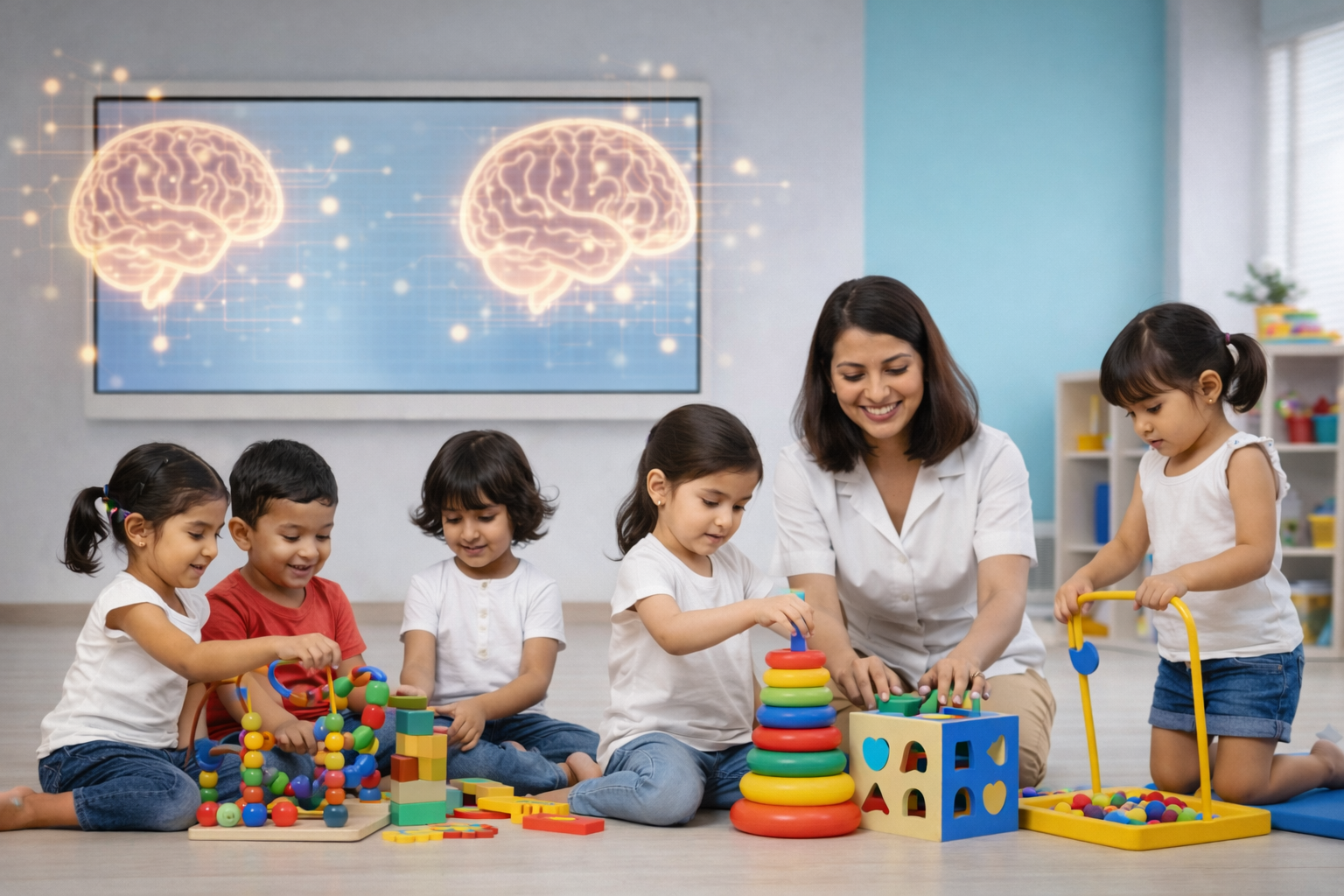As parents, we want our children to thrive socially making friends easily, speaking up in groups, and enjoying new experiences. These children may struggle with social development, impacting their ability to connect with others comfortably.
At Samvedan Child Development Center, led by Dr. Purva Shah, the focus is on supporting children through every step of their growth emphasizing emotional development, behavioral development, and social skills. Understanding how these areas intersect is vital to helping shy or anxious children blossom with confidence.
What Does Social Confidence Look Like in Children?
Social confidence means a child feels secure and capable in social settings. Confident children can initiate conversations, join group activities, and express themselves without overwhelming fear or hesitation. However, shy or anxious children might find even simple social tasks stressful.
This difficulty often stems from delays or challenges in social development, which is closely linked to how well a child manages their emotions and behaviors. When a child feels unsure about their emotions (such as anxiety or fear), their social interactions may be limited or avoided altogether.
The Importance of Addressing Social Challenges Early
Kids who don’t develop adequate social skills may face feelings of loneliness or low self-esteem, which can affect other parts of their life like school performance or mental health.
By addressing these challenges during childhood, parents and professionals can create a supportive environment that nurtures healthy emotional development and positive social behaviors. This foundation empowers children to engage confidently with peers and adults alike.
How to Recognize When Your Child Needs Help
It’s natural for children to be shy sometimes, but persistent fear or avoidance of social situations could signal deeper anxiety. Signs to watch for include:
-
Intense worry about social events or new people
-
Reluctance to speak or participate in groups
-
Physical complaints like stomachaches before social occasions
-
Withdrawal or refusal to attend school or activities
-
Difficulty making eye contact or maintaining conversations
If these behaviors interfere with daily life, consulting experts at centers like Samvedan CDC can provide clarity and guidance.
Practical Ways to Build Social Confidence in Shy or Anxious Children
Dr. Purva Shah at Samvedan CDC recommends strategies that respect each child’s comfort zone while encouraging growth. Here are some effective methods parents and educators can apply:
1. Create a Trusting and Supportive Environment
Children need to feel safe sharing their feelings. Talk openly about emotions and reassure your child that it’s okay to feel nervous. This nurtures emotional development by teaching them that their feelings are understood and accepted.
2. Gradual Exposure to Social Settings
Instead of overwhelming your child with large groups, start small. Arrange playdates with one or two friends, or attend familiar community events. Slowly increasing social exposure helps ease anxiety and builds positive experiences.
3. Practice Social Skills Through Play
Engage your child in role-playing everyday social situations like greeting a friend or asking to join a game. Using stories or puppet shows to illustrate social cues can also prepare children for real-life interactions, enhancing their behavioral development.
4. Teach Techniques to Manage Anxiety
Introduce calming methods like deep breathing, counting, or mindfulness exercises. When children learn to regulate their anxiety, they gain control over their reactions, which encourages more participation in social activities.
5. Celebrate Effort and Progress
Positive reinforcement helps boost confidence and motivates continued efforts.
How Samvedan Child Development Center Supports Families
Helping a shy or anxious child is a team effort. Samvedan Child Development Center, with Dr. Purva Shah at the helm, offers tailored assessments and interventions focused on enhancing social, emotional, and behavioral development.
Services include:
-
Personalized therapy sessions focusing on social skills
-
Group programs to practice interaction in a supportive setting
-
Parent workshops to equip caregivers with effective strategies
-
Collaborative work with schools to support children consistently
By working closely with families, Samvedan creates a holistic, nurturing environment that encourages steady growth in social confidence.
Success Story: From Hesitant to Socially Engaged
Take the case of Anaya, a 5-year-old who avoided group play and preferred staying close to adults. Her parents were concerned about her limited social circle and anxiety in new places. At Samvedan CDC.
With consistent support, Anaya began joining small group activities and even initiated play with classmates after several months. Her progress was a testament to how thoughtful intervention in child development can unlock potential.
Daily Tips for Parents to Encourage Social Growth
Here are some practical ways parents can continue supporting their child’s social confidence every day:
-
Model social interactions through your own behavior—greet neighbors, show polite conversation skills.
-
Encourage hobbies or activities that involve peers, like sports or art classes.
-
Read stories about friendship and emotions to help your child relate and learn.
-
Maintain balanced routines, allowing time for socializing and quiet downtime.
-
Focus on strengths and positive behaviors rather than labeling your child as “shy” or “anxious.






